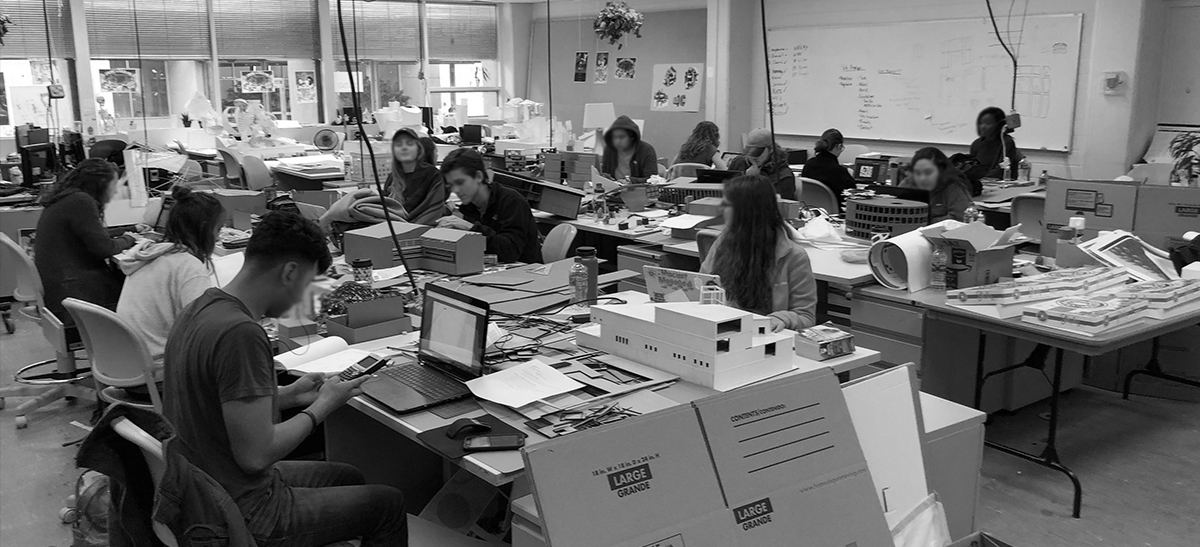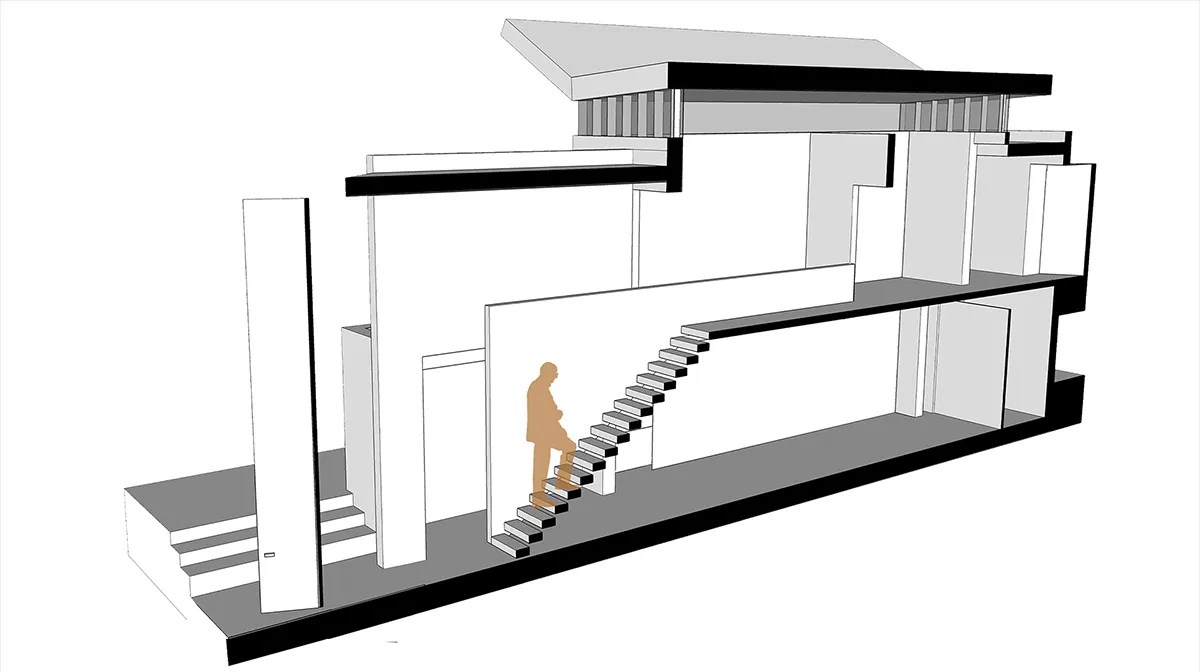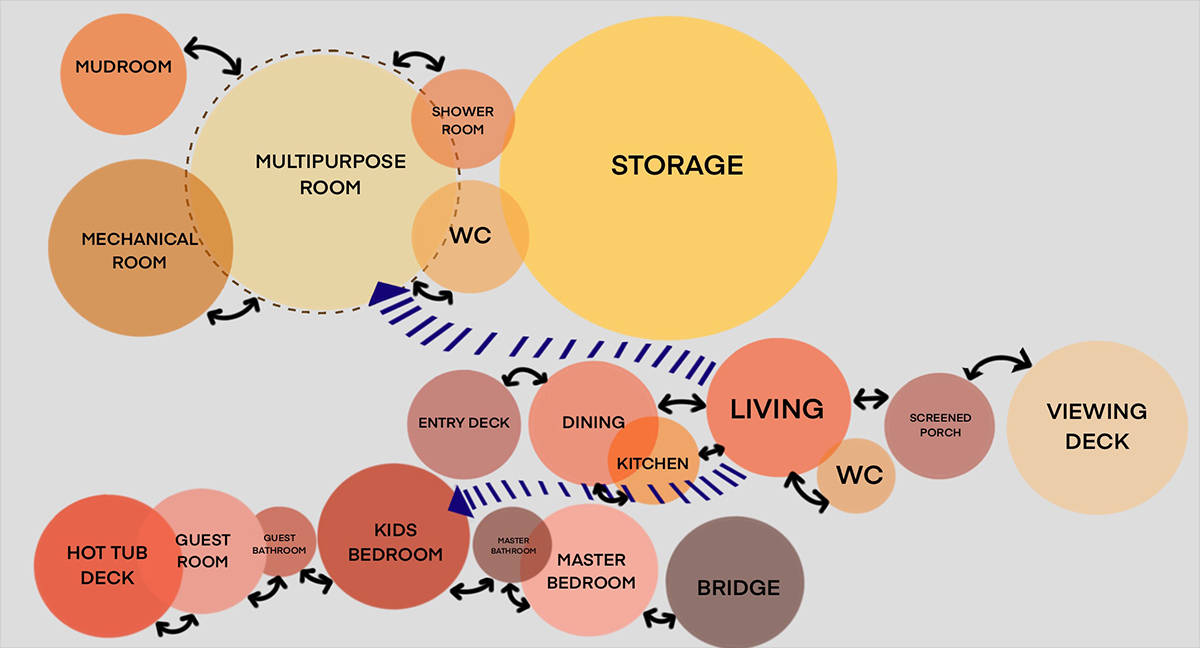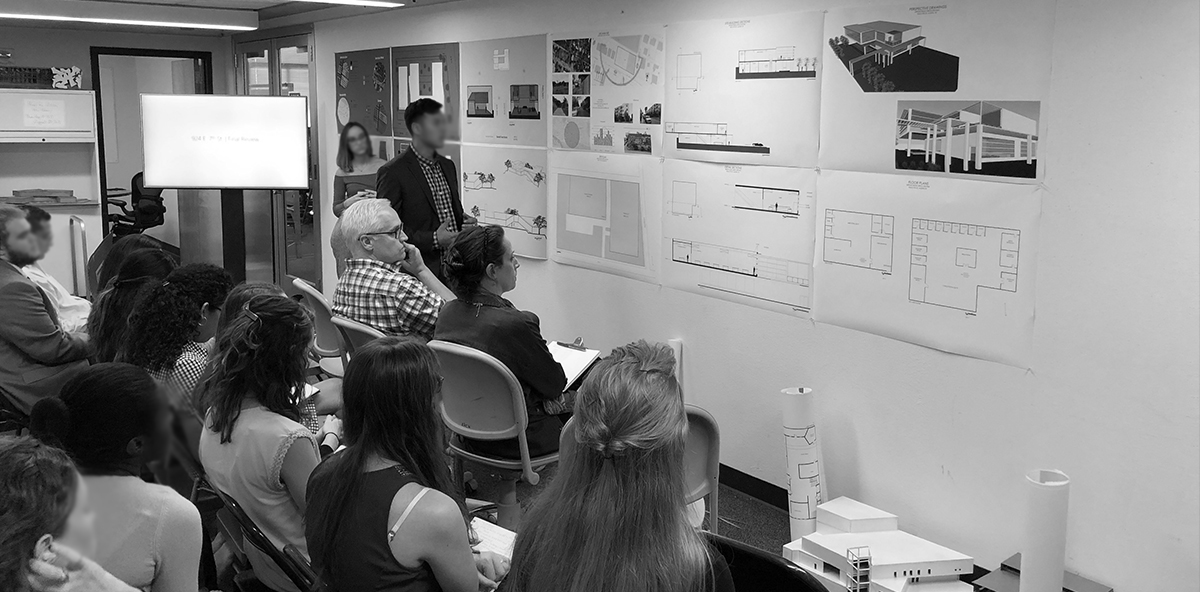Let’s talk about starting architecture school. What is going to happen in your first year of architecture school? Probably you will wonder … what have I gotten myself into? What have I signed up for? What does that word even mean? One of the questions that came through in our recent call asked about advice for a student just starting architecture school. So I thought I would tackle that one in a post, especially since I am in the middle of my second week of the fall semester. At this moment there are approximately 120 new first-year students in the building who may feel lost and confused. Maybe you are feeling that way also.
So I will try to break this into the Top Five Points of Advice for students starting architecture school. While I am not teaching any first-year students this year, I am still very active in their education this semester on various levels. I am the coordinator of the graphic representation class they are all taking. I oversee the Ph.D. students who teach this class, and I am responsible for the curricula. But also, I have been teaching first-year students for the past several years. Anyway, on to the advice… I am offering these up as more general ideas to help you in your path over the next few years of study. Hopefully, they will apply to your situation and your school of choice.
One: Failure is Acceptable.
Now I do not mean overall, like for the entire course or semester, but for smaller-scale situations. Part of the process of design is actually failure. Up to this point in your education, you have probably only been taught to seek the correct answer. All of your efforts were put forth to find the one and only correct answer. Design does not work that way. Let me repeat. DESIGN does not work that way. Design is a process. It is a sequence of trial and error. Attempts and missteps. Successes and failures. That is just part of the concept of iteration. This involves looking at design problems from multiple perspectives and trying to solve them in many different ways until one of them make the most sense. So realize that you will miss the mark. Sometimes on an entire assignment. But that is at some point expected and at other points, I would say should be encouraged. I will say not every instructor sees it that way, but I think it is essential. So do not be focused on finding the one and only correct answer because there is not one. There are thousands.
Two: Observe Everything.
When you start your first year of architecture school, your perception of the world should begin to change. You will learn ideas and concepts that change the way you see the world around you. Spend time in that. Look at everything through that new lens. Do not be afraid to stop and stare at things in an attempt to figure them out. Hierarchy, proportion, scale, positive space, negative space, solids, voids, textures, shadows; all of these will take on new meanings and impact the way you see and comprehend the world. Look for them. Try to understand them. Look up. Look down. Look at big things. Look at small things. The more you can observe and understand, the better you will be able to recreate and manipulate that knowledge into your work and design.
Three: Basics are Important.
I know you may have wanted to go to architecture school to design houses or skyscrapers. Still, it is vital to really have a solid foundation in these basic principles, concepts, and theories you learn in your early architecture education. Focus on those ideas. Do not try to imagine every project as some type of skyscraper when that is NOT the assignment. These foundational concepts are what will make you stronger as you move forward. A solid mastery of the basic principles and concepts will get you very, very far. Some architects (even the most famous) have spent their entire careers simply investigating a basic concept. They have focused on a single idea and explored it from many perspectives, but it is all about a single concept at the core. Basic concepts are not a limitation to achieving greatness. In fact, I would suppose that mastery of basic concepts will almost always equate to greatness.
Four: Make yourself a Sponge.
I say this with a bit of fun. The idea here is to soak up as much information as you can. I think this is especially important in the early part of your education. At times, a young student may find an instructor they immensely enjoy and may try only to take that instructor for all their classes. While I think that is flattering as a professor, I think you might be doing yourself some harm as a student. Exposure to multiple ways of thinking about architecture is indispensable. All of those different experiences help create you as a designer and architect. While you may really “dig” one professor, make yourself branch out. Maybe you can come back to them at the end of your educational journey to complete the circle. But if you only take one instructor for the majority of your education, I would say that you have limited yourself. Design should be all about exposure to various ideas. So take advantage of that while you can. You may not always have that ability, especially once you move into the workforce.
Five: Time Management is Critical.
This is a skill that may be difficult to learn early in your education. You may feel overwhelmed with the amount of work you are asked to complete. It may seem impossible. But you have to learn to manage your time. Some of this relates to the advice item number One above. As you progress through the first semester and first year of architecture school, you should learn how to manage your time. How can you manage yourself better? Practice. Experiment. But begin to figure that out about yourself. You are no longer on the strict scheduling of high school and your family structure most likely. This is part of truly becoming an adult. Therefore, it is imperative that you begin to develop patterns for your workflow and process. Of course, this process will change during your education years and then again entering the profession, but making strides to establish these skills for yourself earlier will help you. As a side note, I was terrible at this as a young person. Many of those bad habits have stayed with me more than I care to admit or would prefer.
There are plenty of tidbits of advice I could offer for those just beginning their journey into architecture school, but I think these are some of the top ones. I hope you find that architecture school is a significantly different style of learning style than you have previously experienced. I hope that you can grow and expand your mind and ability to perceive the world around you.
Until next time, Studio Lessons 101 is a series I am developing on the site. See some other posts here and here.
Studio Lessons 101 is a series I am developing on the site. See some other posts here and here.





